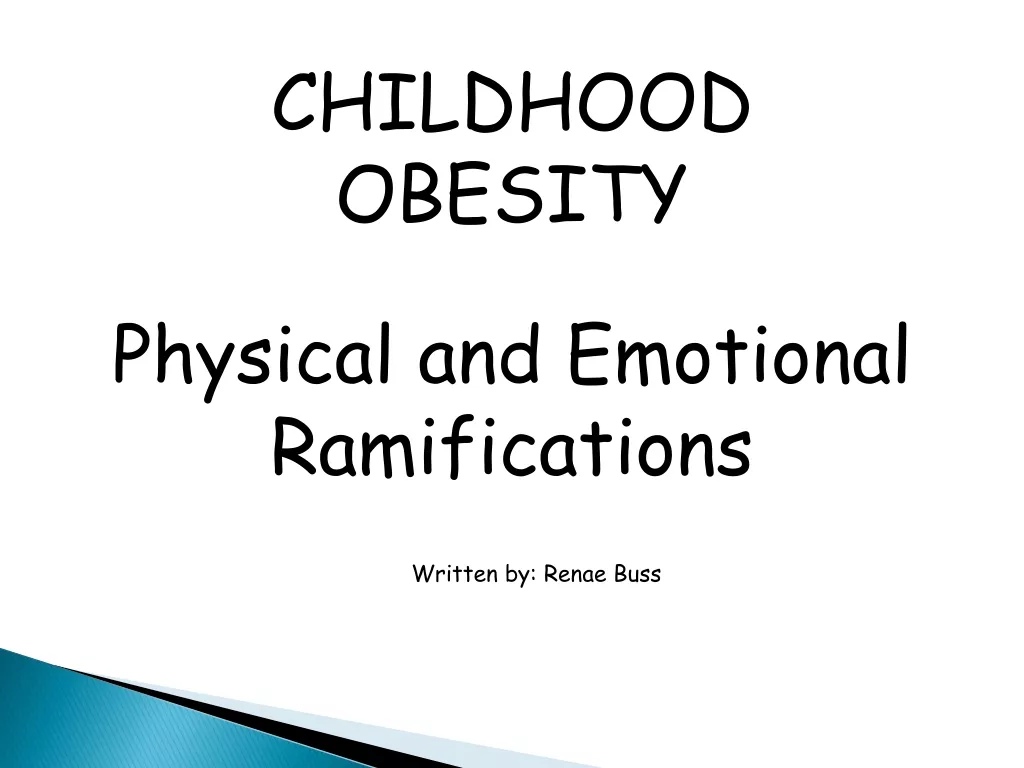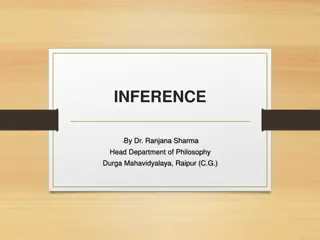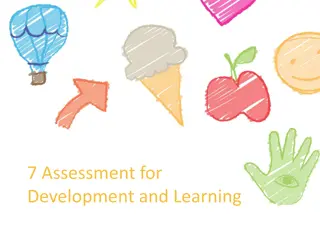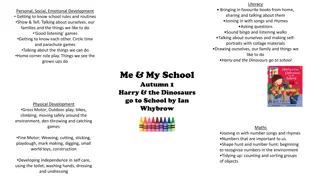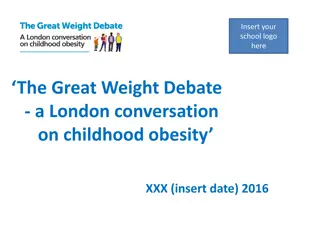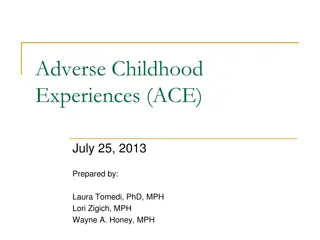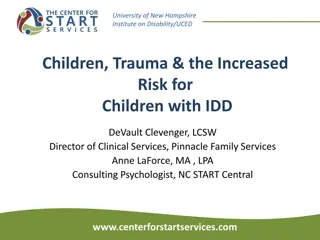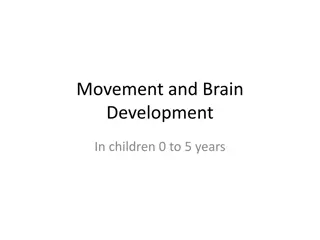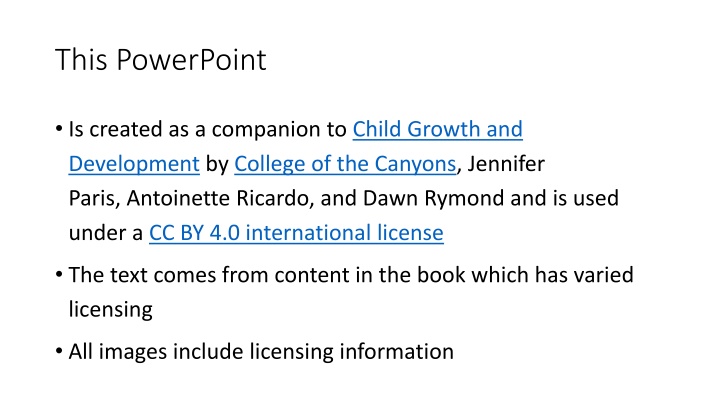
Key Aspects of Child Growth and Development in Middle Childhood
Explore the physical, cognitive, and nutritional milestones in middle childhood including brain and motor skill development, energy needs, and vegetarianism. This informative presentation is based on "Child Growth and Development" by College of the Canyons and provides valuable insights into the crucial aspects of a child's growth journey.
Download Presentation

Please find below an Image/Link to download the presentation.
The content on the website is provided AS IS for your information and personal use only. It may not be sold, licensed, or shared on other websites without obtaining consent from the author. If you encounter any issues during the download, it is possible that the publisher has removed the file from their server.
You are allowed to download the files provided on this website for personal or commercial use, subject to the condition that they are used lawfully. All files are the property of their respective owners.
The content on the website is provided AS IS for your information and personal use only. It may not be sold, licensed, or shared on other websites without obtaining consent from the author.
E N D
Presentation Transcript
This PowerPoint Is created as a companion to Child Growth and Development by College of the Canyons, Jennifer Paris, Antoinette Ricardo, and Dawn Rymond and is used under a CC BY 4.0 international license The text comes from content in the book which has varied licensing All images include licensing information
Physical Development In Middle Childhood Image by MI PHAM is freely available on Unsplash
Brain Development Brain reaches adult size about age 7 During middle childhood improvements in Logic, planning, and memory Hemisphere coordination Attention span Reaction time and information processing speed Image by _DJ_ is licensed under CC BY-SA 2.0
Physical Growth Growth rates are slow and steady 5-7 pounds per year About 2 inches per year Slimming down and gaining muscle strength Bones lengthen and muscles strengthen Faster growth in extremities adult-like proportions Images by the CDC are in the public domain
Motor Skill Improvement Significant improvement in motor skills from 6 to 9 years Eye-hand coordination and fine motor skills better writing and cutting Sports and extracurricular activities Image by Greg Rosenke is freely available on Unsplash
Nutrition Habits and attitudes toward food influenced by many things Need to be directed towards healthy choices and given nutrient dense foods Importance of parents and caregivers Reinforcing good habits and introducing new foods into diet Being good role models Diet today shows increase in fat, processed foods, portion size Image is licensed under CC0
Energy Needs These vary based on growth, level of physical activity, and gender Girls 4-8 years: 1,200-1,800 calories 9-13 years: 1,400-2,200 calories Boys 4-8 years: 1,200-2,000 calories 9-13 years: 1,600-2,600 calories Image from the NIH is in the public domain
Vegetarianism Families or children may choose to pursue a vegetarian diet Ovo-vegetarians Lacto-ovo-vegetarians Lacto-vegetarians Vegans Image by Sunnya343 is licensed under CC BY-SA 4.0 Strict vegan diets require careful planning
Malnutrition Millions of children grow up in food insecure households This can lead to numerous problems Deficiencies stunted growth, illness, and developmental delays Programs such as the National School Lunch Program and School Breakfast program work to provide access to nutritious foods Image by the USDA is in the public domain
Food Allergies and Intolerances 3 million children under age 18 are allergic to at least one food Allergy = immune response Includes anaphylaxis Intolerance = unpleasant reactions that are not an immune response Image by Sean William is licensed under CC BY-SA 3.0
Overweight and Obesity in Childhood Excess weight is associated with Health problems Impaired brain functioning Damage to social and emotional well-being Current measurement is Body Mass Index (BMI) Overweight: BMI is over 85th percentile Obese: BMI is over 95th percentile Can be lifelong problem Image by Gaulsstin is licensed under CC BY 2.0 Should be handled with behavioral interventions, not dieting
This PowerPoint was created by Jennifer Paris. Except where otherwise noted, it is licensed under a Creative Commons Attribution 4.0 International License.

